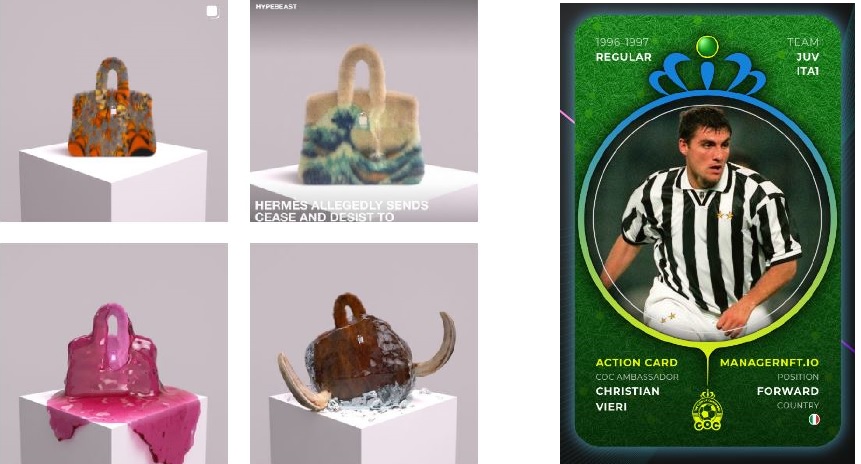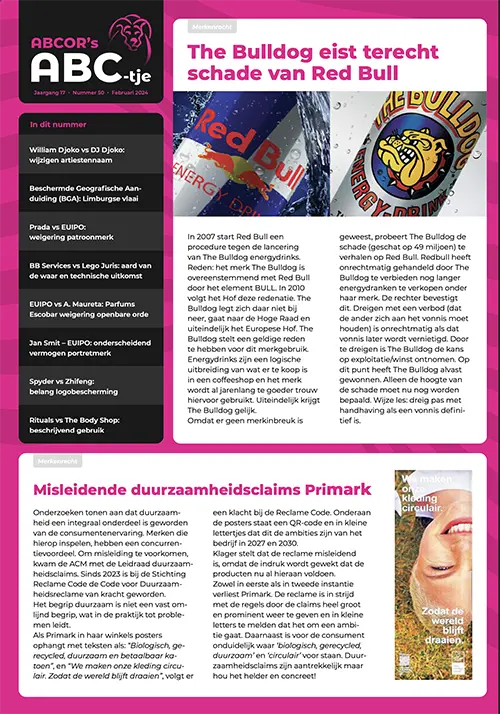Digital artist Mason Rothschild created and sold 100 NFTs of virtual Birkin bags via
Although the case is ongoing, initially Hermes was vindicated by the jury in New York. Partly because of the artist’s statements on social media, which showed that the creator was primarily concerned with commercial success. For well-known trademarks, protection also extends to non-similar goods, such as NFTs. In this situation there is clearly a link to the real product and the use of NFT leads to dilution. Conclusion: trademark infringement and initial compensation of damages of USD 133,000.
In Europe there was a lawsuit surrounding NFTs of Christian Vieri in the famous black and white JUVENTUS shirt (digital cards with his image on them). The creators had a deal with Christian about this, but not with Juventus. Juventus claims infringement of its well-known trademark JUVENTUS. This trademark is also used for a wide range of merchandise items, including digital games. Therefore, the mark was also once applied for in Class 9, for digital downloadable publications. The goods are then deemed similar. The public may be confused and think Juventus is involved in the issuing of these NFTs. In both cases, the fact that it concerns well-known trademarks played a role in the assessment.
Therefore, it is wise to immediately extend protection to NFTs and the Metaverse in new trademark applications for consumer products. After all, not every company can rely on the broad protection of a well-known trademark. (Source image: Instagram Mason Rothschild/ Binance.com)

